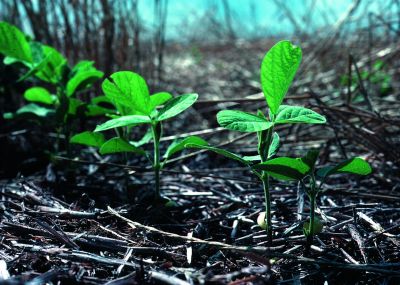A longer life for designer soybean crops

Iowa_(2909)(NRCS_Photo_Gallery)
Lynn Betts / Photo courtesy of USDA Natural Resources Conservation Service., via Wikimedia Commons
Researchers are identifying genes and physical traits that affect the performance and lifespan of soybean crops during drought and nitrogen stress.
Soybean is the fourth most important crop worldwide. However, crop yield
is severely hampered by environmental conditions, which ultimately has a
detrimental effect on the food security of millions of people.
To address this problem, the EU-funded 'Extending soybean lifespan' (SOYLIFE) project aimed to enhance the lifespan and yield of soybean. By studying gene function and whole-plant physiology, the project hoped to provide useful insights into stresses like drought and low nitrogen.
Researchers successfully expressed a rice gene in soybean through genetic engineering techniques. This naturally occurring protein, oryzacystatin, interacts with soybean growth hormones. The result: plants have higher protein content, have higher photosynthetic rates and are more stress tolerant.
A myriad of other genes were also found to be active in the roots during low-nitrogen conditions. These all have the potential to play an important role in superior soybean varieties and were kept in a database at Leeds University (United Kingdom) for further study.
Through its proof-of-concept, project outcomes have the potential to underpin the production of a new generation of high-performance plants. Furthermore, the knowledge and experienced gleaned from this project will be transferred to research groups in Africa. Researchers will have the opportunity to design and increase crop production for increased food security and economic value where it is most needed.
published: 2015-05-27

